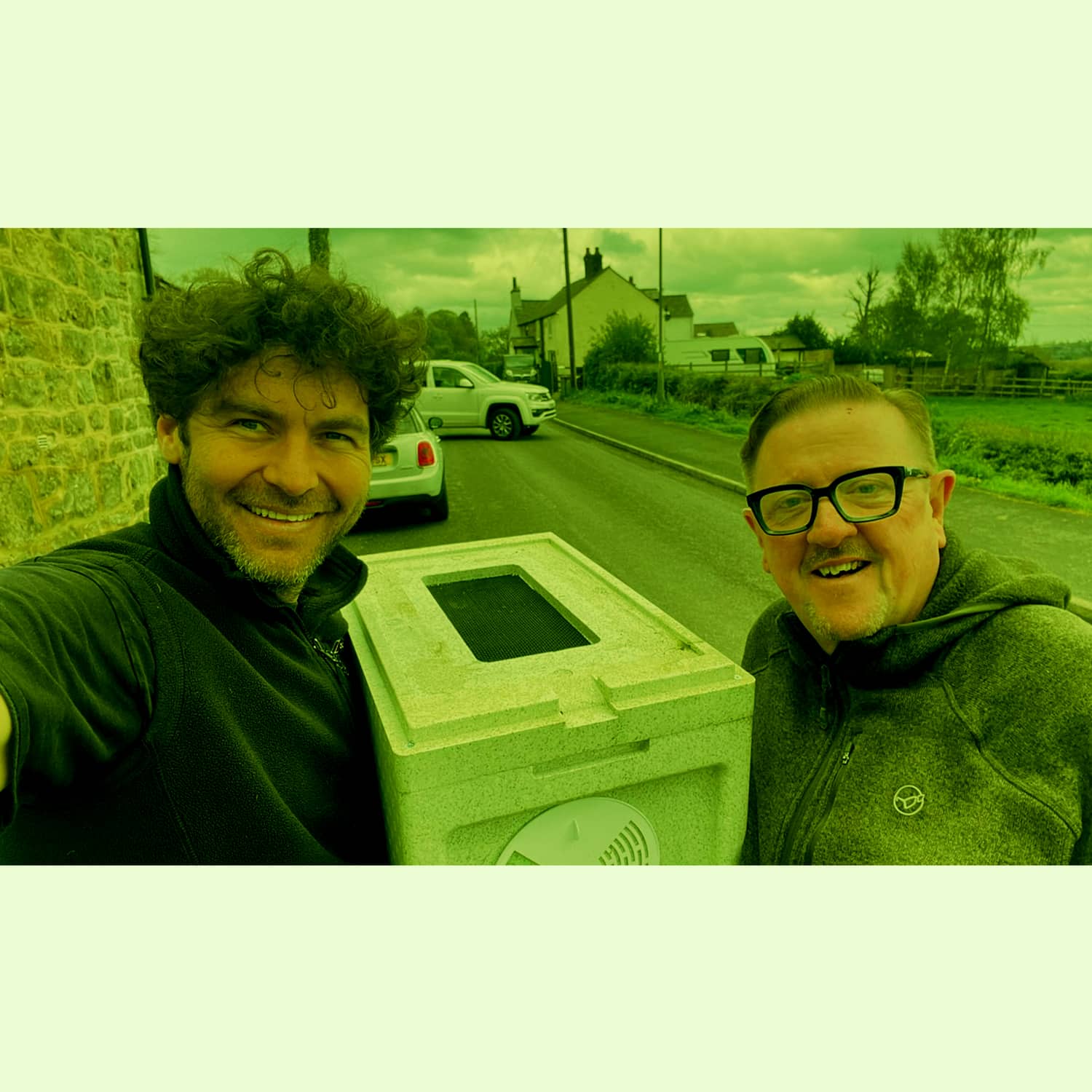The Bees are Buzzing in the Trees to Make Some Honey Just for Me

Happy Friday Friends.
This week marks a significant and truly exciting milestone for Syntech Biofuel, we’ve officially welcomed our first nucleus bee colony
We’ve always believed that regenerative biodiversity and ecosystem innovation should be more than just environmental buzzwords, they should be part of how we build and grow our bio-refinery developments.
Finding practical and meaningful ways to support nature alongside our industrial work has been a challenge we’ve gladly embraced. And from the start, pollinator support was always part of the plan.
This first hive represents the start of something exciting. It’s more than just bees, it’s about pushing the envelope on how an industrial businesses can actively support biodiversity and vital ecosystems, while inspiring others to do the same.
I had the pleasure of travelling to Black Mountain Honey in North Wales, where I met with Laurence, the beekeeper and owner behind the operation. Laurence isn’t just a seasoned expert, he’s also the creator of the No Nonsense Beekeeping Course and a YouTube channel that’s become a hub for new and experienced beekeepers alike.
That’s actually how I found him. His clear, practical approach gave me the confidence to take this step, and I’ve been hooked ever since. Not only is he a wealth of knowledge, but he’s also a genuinely cool bee dude with an infectious passion for what he does.
He also breeds a species of calm bees which ticked all the boxes for me as a novice. I’ve also suffered with chronic hay fever all my life so zen like, calmer, less sting-y bees seemed perfect for avoiding anaphylactic shock and all that kind of stuff.
Meeting Laurence in person was brilliant. He’s got that unique blend of deep knowledge, down-to-earth attitude, and infectious passion, exactly the kind of person you want guiding you into the world of beekeeping. And I have to say, there’s something special about shaking hands with the person who’s about to hand you your very first bees!
I chose to drive up to the Black Mountains in North Wales to keep the carbon reduction story going by fuelling my pick up as always with Syntech ASB biofuel
At Syntech, we talk a lot about regenerative biodiversity and ecosystem innovation, and for good reason. We’re working at the intersection of energy, sustainability, and social impact, and that means thinking holistically about our footprint and how we can give back to the planet in ways that go beyond carbon numbers.
Pollinator support was always part of our plan, but now it’s becoming part of our practice.
Why Bees Matter More Than Ever
The short answer: they’re essential. Bees are responsible for pollinating over 75% of the world’s flowering plants, including more than one-third of the crops we rely on for food. Without bees, we wouldn’t just lose honey, we’d lose apples, almonds, strawberries, coffee, and countless other staples. The biodiversity of our food system would collapse.
Bees also support wild plant life, which in turn supports everything from soil health to carbon sequestration. In other words, bees help hold entire ecosystems together.
But right now, bees are in trouble.
Loss of habitat, pesticide use, disease, Asian hornets and climate change are threatening pollinator populations around the world. The decline of bees is a clear warning sign that ecosystems are out of balance, and it’s a challenge we all share responsibility for.
I see this as not just as a problem to be fixed, but as an opportunity to innovate. Supporting bees isn’t just good for nature, it’s good for the future of sustainable business. It’s one of the ways we can reintegrate living systems into industrial development, proving that circular and regenerative models are not only possible but necessary.
Beekeeping at Syntech: Small Hive, Big Picture
Our new beehive is more than a standalone project, it’s the first step in a broader initiative to explore how our bio-refinery sites can actively support biodiversity. From wildflower planting and pollinator pathways to water conservation and habitat restoration, this hive is the beginning of a wider, long-term vision.
I won’t pretend I’m not a little obsessed already. I love everything about it, from suiting up in my beekeeping gear to watching the almost magical behaviour of the colony as they began to orientate out of the nucleus box. Bees are incredible creatures. Their social structure, communication through dancing, and sheer efficiency are awe-inspiring.
There’s something deeply grounding about learning to care for them. It shifts your perspective, on time, on nature, on balance. And that’s exactly the kind of mindset we need more of in businesses.
What’s Next?
I’ll be sharing regular updates as the hive develops, and as we continue to explore new ways to embed biodiversity into our sustainability strategy. Watch out for our Bee-cam when it goes live.
I’m also collaborating with schools, community groups, and local partners to help spread awareness of pollinator protection and inspire more people to take the leap into beekeeping.
You may have read in a previous blog that I recently gave a talk at the local St. James primary school and handed out tins of bee-bombs to the pupils so they could plant and grow wildflowers for the bees and pollinators, explaining that saving the planet can start with small changes and everyone can play their part.
This isn’t just about Syntech doing its bit, it’s about sparking bigger conversations around how industrial businesses can coexist with nature rather than compete with it.
And I’ll admit it, wearing the beekeeping suit makes me feel like I’m making a difference. Because in a small way, we’re helping to protect some of the planet’s most important little super heroes.
Here’s to bees, biodiversity, and building a future that thrives from the ground up.
Thanks for reading, have a beautiful weekend.
Mike.
Sign up to the Syntech Biofuel newsletter
Stay informed about us, our biofuel and more, just subscribe
and we’ll keep you posted.